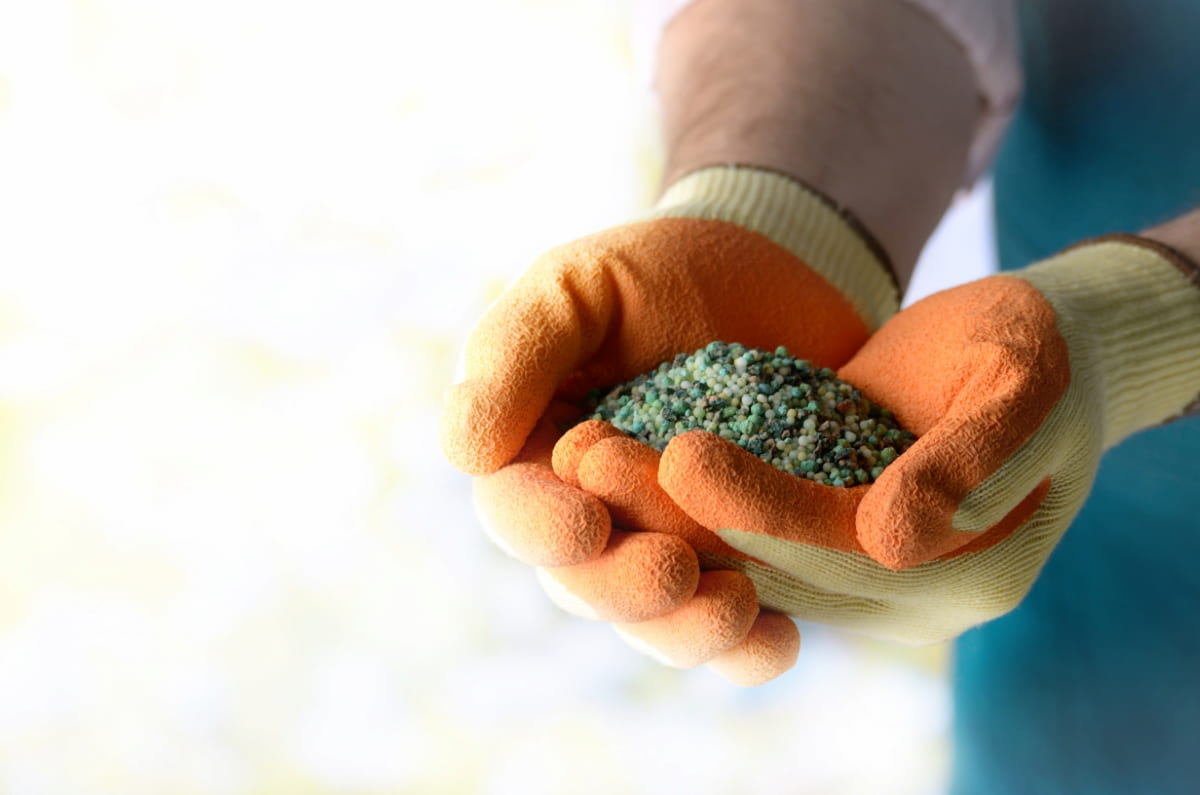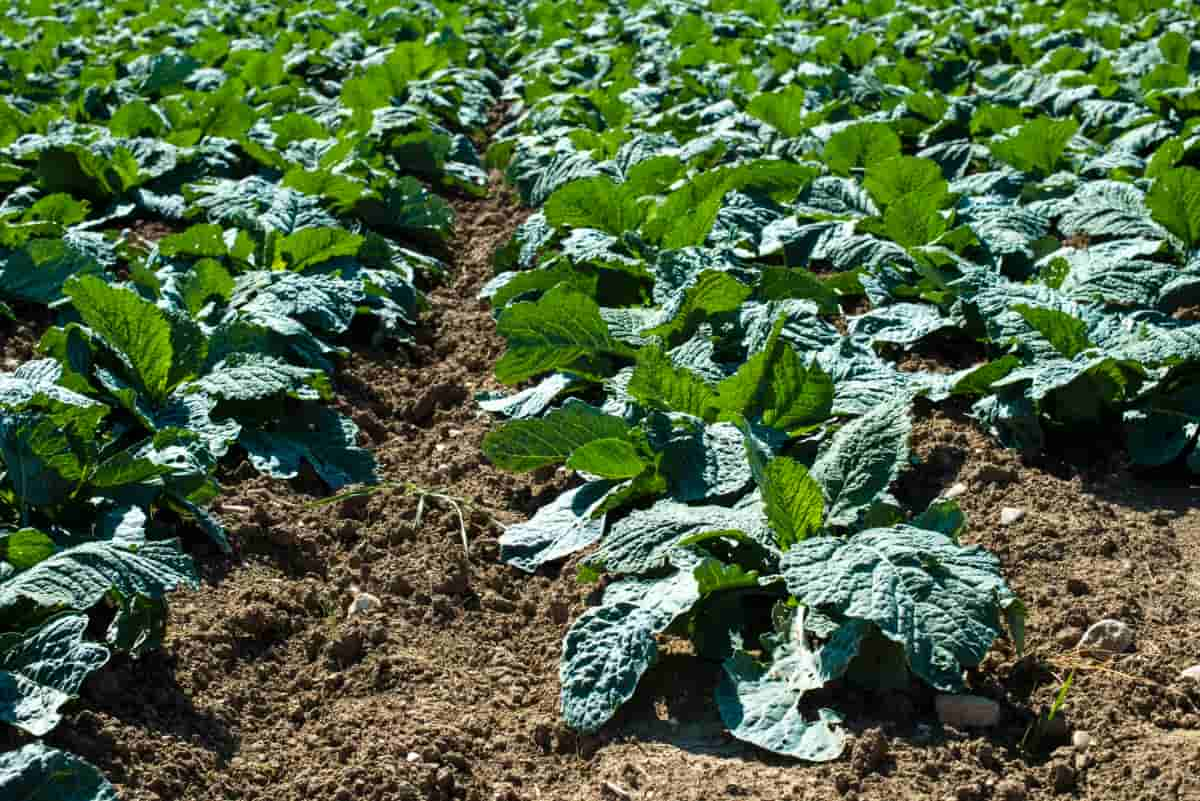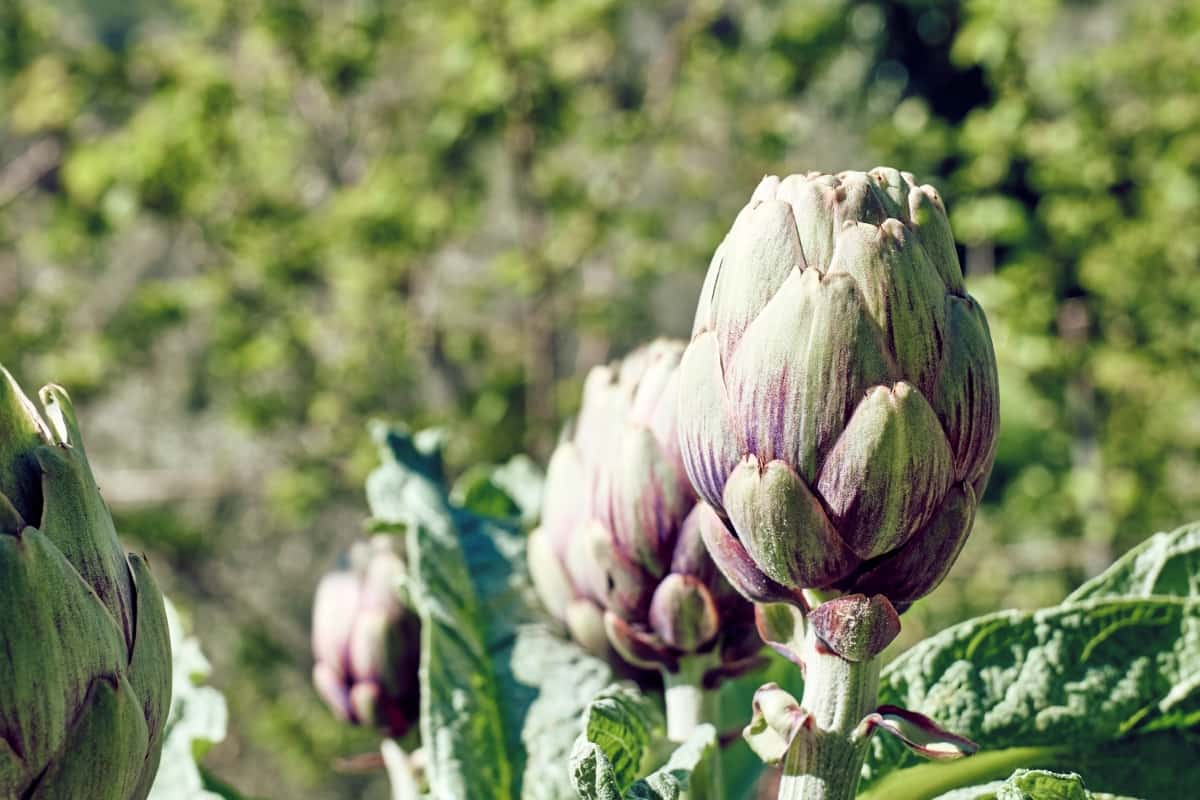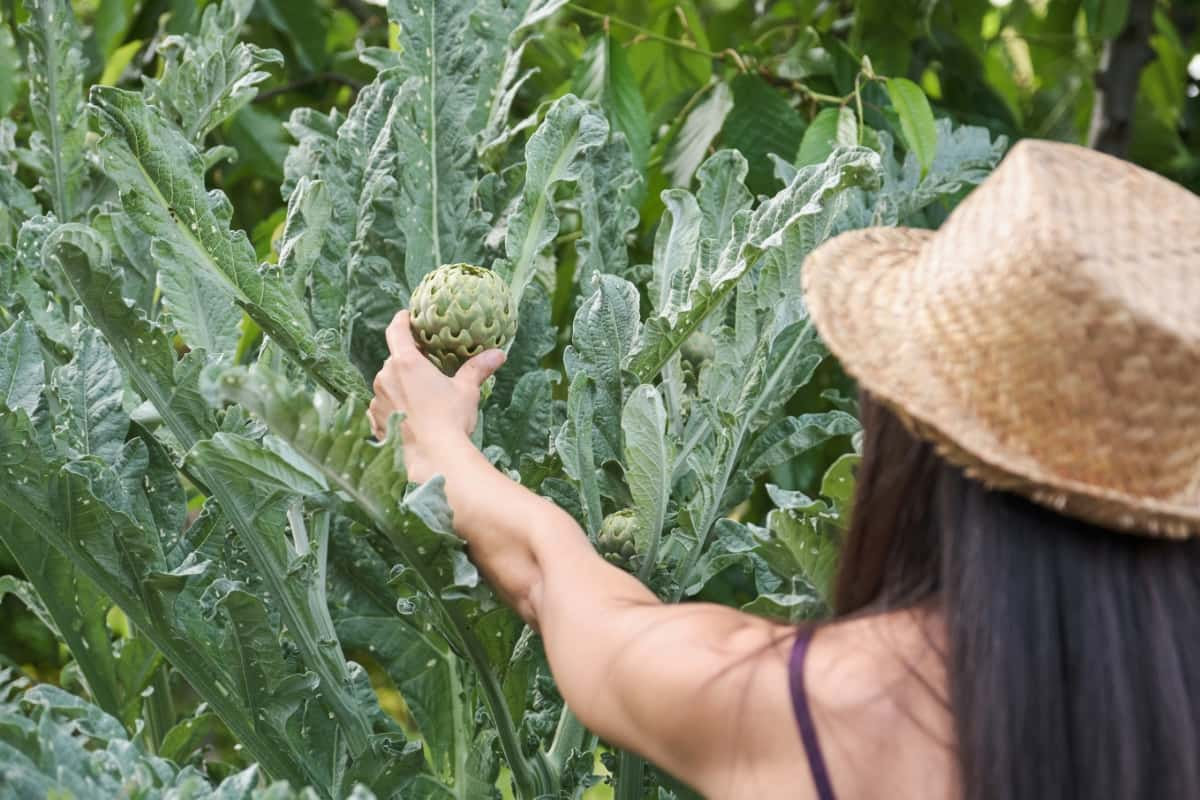Fertilizer plays a vital role in the cultivation of Artichokes, ensuring that these majestic plants receive the nutrients they need to grow. Artichokes are heavy feeders, meaning they require a steady nutrient supply throughout their growing season. Moreover, fertilizers contribute to improved yield and quality of Artichoke harvests. Fertilizers also play a crucial role in enhancing flower bud production.

Best Fertilizer for Artichokes
Organic Fertilizers for Artichokes
Organic fertilizers can be good nutrients for growing Artichokes, providing them with the essential nutrients they need while also promoting soil health and sustainability. The popular organic fertilizer option is compost, which is made from decomposed organic matter such as kitchen scraps, yard waste, and manure. Compost provides a balanced mix of nutrients and improves soil structure and water retention.
Another organic option is fish emulsion, which is made from fermented fish remains and contains high levels of nitrogen that promote leafy growth in Artichoke plants. For those looking to add more potassium to their Artichoke plants, seaweed-based fertilizers are an excellent choice.
Balanced NPK Fertilizers for Artichokes
These fertilizers have an ideal ratio of nitrogen (N), phosphorus (P), and potassium (K) that provide essential nutrients for healthy growth. A popular choice is a balanced NPK fertilizer for Artichokes with an N-P-K ratio of 10-10-10 or 12-12-12. This means that the fertilizer contains equal parts of each nutrient, providing a well-rounded blend.
Nitrogen helps promote leafy growth, phosphorus aids in root development and flower production, and potassium enhances overall plant health and disease resistance. By applying this type of fertilizer according to package instructions or as recommended by experts, you can give your Artichoke plants a solid foundation for optimal growth and yield potential.
High-Potassium Fertilizers for Artichokes
Potassium is essential for strong root development, disease resistance, and the production of high-quality Artichokes. The main option for providing your Artichokes with a boost of potassium is to use high-potassium fertilizers specifically formulated for these plants. These fertilizers typically have an NPK ratio that favors potassium over nitrogen and phosphorus.
Potassium-rich fertilizers can come in various forms, including granular or liquid. Granular options are often slow-release formulations that provide a steady supply of nutrients over time. On the other hand, liquid fertilizers offer quick absorption by the plant roots and are convenient for foliar feeding. Remember to follow the product label instructions regarding dosage rates and application methods.
Liquid Fertilizers for Artichokes
When choosing a liquid fertilizer for your Artichokes, look for one that is specifically designed for vegetable or fruit-bearing plants. These formulations often contain higher levels of potassium, phosphorus, and micronutrients that are important for promoting healthy growth and robust yields.
In case you missed it: How to Protect Artichoke Plants from Pests and Diseases

To apply liquid fertilizer to your Artichokes, dilute it according to the instructions on the package and water your plants thoroughly with the solution. Seaweed extract and fish emulsion are the best liquid fertilizers for Artichokes. With regular applications throughout the growing season, you can provide them with all the necessary nutrients they need to thrive and produce bountiful harvests.
Slow-Release Fertilizers for Artichokes
The advantage of using slow-release fertilizers is that they require less frequent application compared to other types. Another benefit is that these fertilizers help prevent nutrient leaching, which occurs when water carries away valuable nutrients before plants can absorb them. Slow-release formulas ensure that nutrients stay available in the soil for longer periods, maximizing their uptake by Artichokes. Additionally, slow-release fertilizers promote healthy root development by delivering nutrients directly to the root zone.
Nitrogen-Rich Fertilizers for Artichokes
Nitrogen is an important nutrient for the growth and development of Artichoke plants. It plays a vital role in promoting leafy green growth, which is essential for the healthy production of Artichokes. The main option is a blood meal, which is a natural source of nitrogen derived from dried animal blood. This organic fertilizer releases nitrogen slowly over time, providing a steady supply to your Artichokes throughout the growing season.
Another option is fish emulsion, which is made from fermented fish remains. This liquid fertilizer contains high nitrogen levels and other beneficial nutrients that the plant roots can quickly absorb. These fast-acting fertilizers provide an immediate boost of nitrogen to promote vigorous growth in your Artichoke plants.
Phosphorus-Rich Fertilizers for Artichokes
Phosphorus plays a crucial role in plant growth and development, making it essential to provide them with phosphorus-rich fertilizers. These fertilizers help promote root development, enhance flowering and fruiting, and improve overall plant health. Applying phosphorus-rich fertilizers during the early stages of growth is particularly beneficial for Artichokes. This helps establish strong roots before the plant starts producing flower buds.
To ensure optimal absorption of phosphorus by your Artichoke plants, it’s important to apply the fertilizer correctly. Remember to always water your plants after applying any fertilizer to help facilitate nutrient uptake by their roots.
Potassium-Rich Fertilizers for Artichokes
It plays a crucial role in promoting strong root growth, improving water uptake, and enhancing overall plant vigor. When it comes to choosing a potassium-rich fertilizer for your Artichokes, there are several options available. One popular choice is the muriate of potash, also known as potassium chloride.
In case you missed it: How to Plant Artichoke Seeds or Transplants: A Step-By-Step Guide

This granular fertilizer contains high levels of potassium and can be applied to the soil around the base of your Artichoke plants. Another option is the sulfate of potash, which provides both potassium and sulfur nutrients to support plant health. If you prefer organic options, consider using wood ash or kelp meal as natural sources of potassium.
Fertilizer Timing for Artichokes
To ensure optimal growth and yield, it’s important to apply fertilizer at the right time throughout the growing season. In the early spring, before planting your Artichokes, you can incorporate a balanced organic or slow-release fertilizer into the soil. This will provide long-lasting nutrients that will support healthy root development and overall plant growth. Once your Artichokes are established and actively growing, you can start applying a nitrogen-rich fertilizer every four to six weeks.
Nitrogen promotes leafy green growth, which is essential for robust Artichoke plants. As summer approaches and your Artichokes begin forming buds, switch to a phosphorus-rich fertilizer. Phosphorus aids in flower bud development and helps improve fruit set. During the flowering stage, it’s beneficial to use potassium-rich fertilizers. Potassium enhances plant vigor and strengthens disease resistance in Artichoke plants.
Artichoke Fertilizer Recommendations by Growing Region
In areas with mild climates and ample rainfall, organic fertilizers can work wonders for Artichoke plants. Compost or well-rotted manure are excellent choices for enriching the soil and boosting overall plant health. For those gardening in regions with drier climates or sandy soils that drain quickly, liquid fertilizers may be more beneficial. These fast-acting formulations deliver essential nutrients directly to the roots of your Artichoke plants, ensuring they receive an instant boost of nutrition.
If you prefer a more controlled release of nutrients, slow-release fertilizers are worth considering. These products come in granular form and gradually break down over time as moisture activates their nutrient content. Slow-release fertilizers offer convenience and peace of mind by providing a steady supply of nourishment to support continuous growth.
Frequently Asked Questions (FAQ) on Fertilizer for Artichokes
Can I Use Liquid Fertilizer on My Artichoke Plants?
Yes. Liquid fertilizers can be an effective way to provide quick nutrition to your hungry Artichoke plants. They are easily absorbed through both foliage and roots and offer immediate results.
Are Slow-Release Fertilizers Suitable for Artichokes?
Absolutely. Slow-release fertilizers work well with Artichokes since they deliver nutrients gradually over an extended period – usually several months. This eliminates the need for frequent applications while providing consistent nourishment throughout the growing season.
How Often Should I Apply Fertilizer to My Artichoke Plants?
It’s generally recommended to apply organic fertilizer every 4-6 weeks during the growing season, but follow the specific instructions on your chosen product.
In case you missed it: Understanding the Different Varieties of Artichokes and Their Growing Requirements

Conclusion
Artichokes thrive when they receive the right amount of nutrients from fertilizers. The main reason why fertilizer is important for Artichokes is that it helps promote healthy growth. By providing adequate amounts of nitrogen, phosphorus, and potassium (NPK), fertilizers assist in the development of robust stems, leafy foliage, and sturdy root systems.
- Feed Your Flock for Less: Top 10 Tips to Save on Chicken Feed
- Ultimate Guide to Ossabaw Island Hog: Breeding, Raising, Diet, and Care
- Hatching Answers: The Top 10 Reasons Your Chickens Aren’t Laying Eggs
- Eggs and Economics: Breaking Down the Cost of Raising Backyard Chickens
- Defend Your Greens: Proven Methods to Keep Iguanas Out of Your Garden
- Ultimate Guide to Cinnamon Queen Chicken: A Comprehensive Guide for Beginners
- Ultimate Guide to California Tan Chicken: Breeding, Raising, Diet, Egg-Production and Care
- Ultimate Guide to Marsh Daisy Chicken: Breeding, Raising, Diet, and Care
- 10 Types of Chicken Farming Businesses You Can Start for Profits